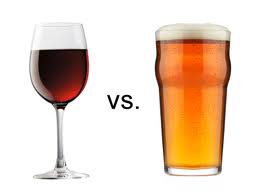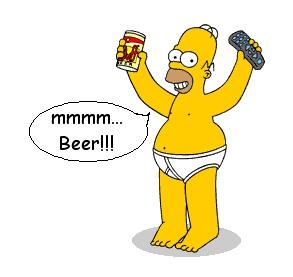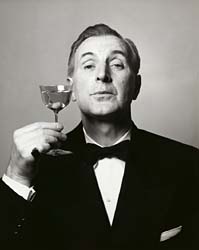 Last weekend I got a ticket to attend the Rocky Mountain Wine and Food Festival, Liquor Depot’s effort at a wine festival. I decided to attend, in part because there are always a handful of breweries present to talk with. This year did not disappoint. I got in a great conversation with the co-founder of Mill Street Brewing, planted ideas in the brain of the Samuel Adams rep, and swapped stories with our good friends at Yukon and Alley Kat.
Last weekend I got a ticket to attend the Rocky Mountain Wine and Food Festival, Liquor Depot’s effort at a wine festival. I decided to attend, in part because there are always a handful of breweries present to talk with. This year did not disappoint. I got in a great conversation with the co-founder of Mill Street Brewing, planted ideas in the brain of the Samuel Adams rep, and swapped stories with our good friends at Yukon and Alley Kat.
But what I mostly take away from the event is a more mature understanding of the culture gulf between beer and wine. Beer guys can sometimes be unfairly snide with wine people (I admit I am guilty of this myself sometimes). And I am pretty sure many wine snobs are unbelievably dismissive of beer appreciators. The reality, of course, is that we can all get along. I love a quality glass of red wine, and I know some great wine people who also understand beer (check out Mel Priestley’s blog for heaven’s sake!!).
In the end I am certain we can get along, communicate our respective passions and respect each other in the morning, afternoon and night.
But that said, there is clearly a cultural difference between the two groups, and events like Rocky Mountain bring them to light. Before I explain myself, a quick caveat: I am a beer guy at a wine festival. I recognize that my energy and presence may in itself alter the behaviour of those being studied – just like quantum physics!
However, I forge forward. I offer three key observations about the difference between wine and beer. First, beer people are more relaxed. The conversations I had at the beer booths were more honest, contextual and inviting. The beer reps willingly talked about competitors and often said very positive things about them. I got no such collegiality at the wine booths. Beer exhibitors talked about their ingredients and process openly, while wine people were suspicious and fairly closed. In general I found the beer people were happy to spend 10-15 minutes chatting, while the wine booths wanted to move me along.
Don’t dismiss this. I know a fair bit about wine, too (not as much as I know about beer), so was able to ask intelligent questions and provide decent tasting descriptions. That should have marked me as a high quality customer and therefore deserving of time (which is exactly what happened at the beer booths – even with those who didn’t know me). But it didn’t.
Second, wine does a much better job building value for its product. The wine booths refused to give away free samples, and spoke of their product as if it was gold bullion. Meanwhile the priority of the beer people was getting their product into people’s hands (mouths?), which meant a much looser approach to samples (hopefully no one gets in trouble for me writing this). At the time I preferred the beer approach, but in hindsight I wonder if the wine people had it right. Don’t devalue your product by offering it cheap. I am biased against pricey tasting tickets – as I think these events should charge big admission and make the tastings free. However, the wineries made people decide if their wine was worth a taste. Six tickets for a .5 oz sample? You had better WANT to taste that wine!
Third, beer is smaller and more personal than wine. Most of the beer booths were staffed by brewery employees. They assigned marketing people, brewing assistants and even, sometimes, the owner themselves to pour samples. The wine booths were exclusively sales representatives. In part this is due to the different structure of the respective industries. Beer is more direct and local, while wine is global and divided. Wineries couldn’t afford to send staff to an event like this. However, for a regional brewery the cost if fairly minimal.
But it is more to it than that. You have to sell beer to people, which means speaking knowledgeably about your product. Asking a young, well-endowed woman to wear a low-cut t-shirt and hawk your wares isn’t going to work. You need beer knowledge. However, wine is more widely appreciated. Customers know what they are looking for and some basic phrases can get you quite far. This is because wine is seen as refined, and therefore everyone “wants” to appreciate it, while beer is still seen as low-brow, which means many people adopt the attitude of: “I don’t drink beer much and don’t know what I like”. Responding to that means having a good sense of what the hell your product tastes like. Wine reps don’t have that issue to the same extent.
And what I think that leads to for beer is a more open, democratic, informal approach to persuading customers. You have to win them over in a way that wine does not. Which maybe explains their looser approach to samples.
In summary, I think there really is a cultural gap between beer and wine. It is not about which is better. It is about how you talk to consumers about your product. It is about the impressions that you leave.
I know that neither is superior. But given my experience as a beer guy at a wine festival, you cannot convince me that we are the same. Vive Le Difference!




November 15, 2010 at 2:27 PM
Funny – I treat wine like beer, and beer like wine – speaking stereotypically, of course! I make wine cheaply at home, and search out exotic and new beers while out and about.
I was at the RMWaFF too this year, and noticed pretty much the same thing. The beer booths were very inclined to talk to you about their product, and the more you talked, the more likely it was that they just gave you another sample, gratis. Not so much at the wine booths, but I really didn’t spend much time at those, as I got caught up in the numerous white spirit purveyors, who, on the whole, displayed attitudes more akin to the beer people.
November 16, 2010 at 8:59 PM
Great post. I abhor stereotypes of all kinds, and as a booze professional I especially hate the ones associated with wine/beer/spirits. I think the issues between beer vs. wine appreciation is largely due to the fact that wine is really trendy right now, and beer isn’t so much – but this is changing, as people are becoming more interested in booze of all kinds. (yay!)